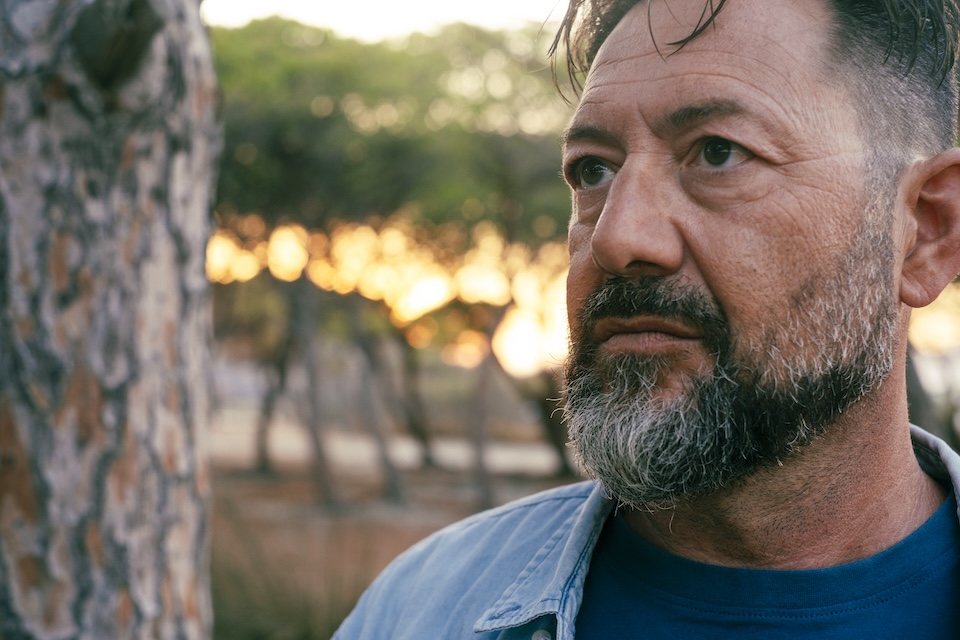Are you at the end of your rope?
Whether you’re living with a substance use disorder yourself, or are experiencing it alongside a loved one, we know the desperation and exhaustion that comes with it. Lost opportunities, broken relationships, declining health, mental health conditions – all of these are possibilities that come with a substance use disorder, and we’re sure they’re concerns you have.
We’re glad you’re here because reading about treatment is a fantastic first step. Whether it’s you, your child or another loved one seeking help, Wolf Creek’s equivalent to an inpatient program is a great option.
We encourage you to join around 79,000 people from Arizona who were in treatment on any single day in 2019. Treatment works, and treatment saves lives. Wolf Creek’s treatment with supportive housing is available to get you started on your recovery journey.
What We Treat: What Is Inpatient Treatment?
Traditional inpatient treatment is when you stay overnight at a treatment facility while working towards your recovery.
While that model may work for some, Wolf Creek provides supportive housing for everyone entering treatment with us. During the day, you’ll experience several therapy modalities, from individual to group psychotherapy. At night, you’ll return to your housing. Our equivalent to inpatient treatment provides an environment free from distractions and potential triggers, in addition to easy access to skilled staff to set you up for success.
At Wolf Creek Recovery, we offer our treatment with housing for all substance use disorders, and for individuals with a co-occurring mental health condition. Mental health and substance use disorders are closely linked, so we offer dual-diagnosis treatment in our equivalent to an inpatient program to tackle both at once.
Services Offered: What to Expect From Inpatient Rehab
Inpatient treatment typically involves extensive therapy.
Wolf Creek’s treatment with housing is the same. It starts with building a firm foundation. This happens through medical stabilization and equipping you with the knowledge you need to understand and overcome your substance use disorder or mental health condition. You’ll learn new strategies and practice healthy behaviors to break free of the grip your condition has on you. Our caring staff has been where you are. Most of us are in recovery too, so you’ll be well-understood at Wolf Creek.

Behavioral Therapies Used in Our Equivalent to Inpatient Treatment
Our holistic approach consists of several evidence-based therapy options, and the care and therapy you receive will be customized to you. No person is the same, and neither is any recovery journey. Your treatment shouldn’t be either.
The many therapy options available to you include:
- Cognitive behavioral therapy (CBT), helps you change negative thoughts and behaviors into something more positive that will promote your recovery
- Dialectical behavioral therapy (DBT), teaches you how to manage strong emotions and develop healthy coping mechanisms when you feel those emotions
- Motivational interviewing (MI), encourages you to think about your motivation for recovery and guides you on how to remain determined
- Rational emotive behavior therapy (REBT), challenges negative beliefs and replaces them with more empowering ones. It helps develop positive self-esteem and confidence while reducing depression and anxiety
- Eye movement desensitization and reprocessing (EMDR), which retrains your brain to manage and process trauma more healthily. EMDR uses simple movements to guide this process
- Family therapy encourages families to heal alongside the person in treatment. We use techniques such as family sculpting and unmasking family roles to educate, build trust, improve communication, and set healthy boundaries
We also offer alternative therapies to supplement your healing process, because we think having fun and making friends in the process is an important part of building a substance-free life. These are available to anyone in treatment, no matter their experience level with any of the options.
Outdoor adventure therapy is one of these, which includes fun experiences like camping and canoeing. We also offer a variety of sports, such as softball, tennis, pickleball, disc golf, golf, and basketball. You’re never required to participate in any of our outdoor activities during your treatment. We encourage it because it’s a great way to learn skills, have fun, and build relationships. You may even find a new hobby to continue outside of your time with us!

How Long Is Inpatient Rehab for Alcohol or Other Drugs at Wolf Creek?
The stay in a typical inpatient facility varies. The only way to know for sure is to look into that specific treatment center.
Wolf Creek’s equivalent to inpatient treatment lasts for 30 to 90 days, and we also have an extended care program for individuals who need long-term care. Our extended care program lasts as long as necessary after the initial treatment, and our housing will still be available.

Pros and Cons of Inpatient Treatment
We wholeheartedly believe in the effectiveness of our treatment and inpatient treatment in general, but we do understand it may not be the ideal option for everyone. In that case, we’d recommend one of our other programs.
The major benefits of traditional inpatient treatment are:
- 24/7 care
- The opportunity to focus fully on recovery without distractions
- A safe environment free of triggers
- In-depth therapy and treatment
- Assistance with self-care and meals
The downsides of inpatient treatment for some patients might be:
- Having to sleep in an unfamiliar place
- Needing to put everything in your life on hold for it
- A difficult transition to “normal life” without another level of treatment
Wolf Creek’s treatment with housing allows for more independence than a traditional inpatient program, while still providing the most important benefits.
Our equivalent to inpatient treatment might still be an adjustment for some, but we are here to make the process easier. You won’t be transitioning into our program alone – you’ll be guided by compassionate, highly-trained professionals.
Cost of Inpatient Rehab Treatment: Does Your Insurance Cover It?
The cost of inpatient treatment also depends on each individual facility.
Wolf Creek Recovery currently accepts most major health insurance policies, and affordable private pay options are available. Please contact Wolf Creek Recovery for more information, and we’ll quickly verify your insurance and let you know what benefits you have. We’ll answer any questions you have in this area, too.
Choose Wolf Creek Recovery’s Inpatient Treatment Program
Seeking treatment for a substance use disorder or mental health condition can be overwhelming and intimidating, especially when it comes to committing to something like an inpatient treatment program. It takes a lot of preparation, and a lot of dedication, but we know you or your loved one can do it. Take the first step toward recovery and choose treatment with Wolf Creek Recovery.
At Wolf Creek Recovery, we know exactly how it feels to be where you are. Our staff is in recovery, too, and we’re eager for you or your loved one to join us. Give us a call at 1-833-732-8202 today for more on how we can help you build a life you love.














